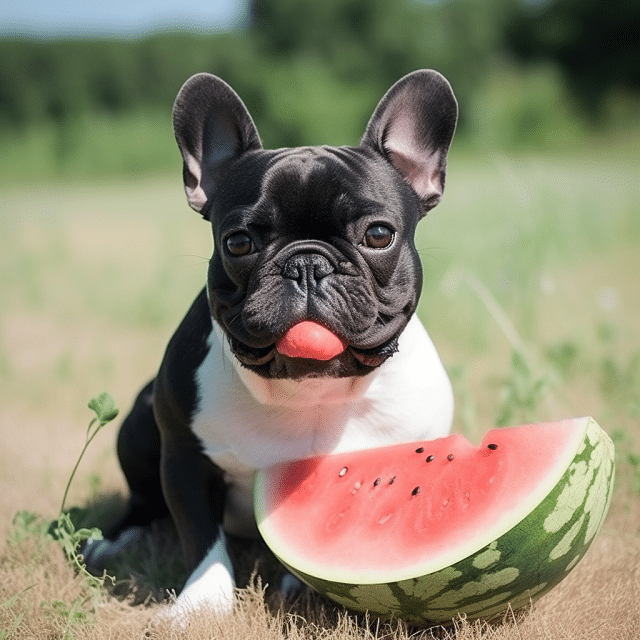Can Dogs Eat Lychee: As a dog owner, you may be tempted to share various fruits and treats with your furry friend. One such fruit that might catch your attention is lychee, a delicious tropical fruit native to Southeast Asia. However, before offering lychee to your canine companion, it is crucial to understand if it is safe and nutritious for them. This article will explore whether dogs can eat lychee, potential risks and hazards, precautions to take if feeding lychee to your dog, and some healthy alternatives.
Is Lychee Safe and Nutritious for Dogs?
Dogs can eat lychee in moderation, but it is not the most suitable fruit for them. While lychees are rich in vitamins and minerals, such as vitamin C, potassium, and copper, these nutrients are not essential for a dog’s diet. Dogs can produce their own vitamin C, and their primary nutritional requirements come from protein, fat, and certain vitamins and minerals that are not found in lychee[^1^].
Moreover, lychees contain a high amount of sugar, which can contribute to weight gain and dental issues in dogs if consumed in large quantities[^2^]. Therefore, feeding lychees to your dog should be done sparingly and with caution.
Potential Risks and Hazards for Dogs Consuming Lychee
Despite being a delicious and nutritious fruit for humans, lychees pose several risks and hazards to dogs:
- Toxic Seed: The most significant risk when feeding lychees to dogs is the toxic seed inside the fruit. Lychee seeds contain a compound called saponin, which can be harmful if ingested by dogs[^3^]. Ingestion of lychee seeds can lead to vomiting, diarrhea, and in severe cases, liver damage or even death. Therefore, it is crucial to remove the seed before offering lychee to your dog.
- Choking Hazard: Lychees can be a choking hazard for dogs, especially small breeds, due to their size and slippery texture. To prevent choking, cut the lychee into small pieces before giving it to your dog.
- Allergic Reactions: Some dogs may develop allergic reactions to lychee, resulting in itching, swelling, or difficulty breathing. If you notice any signs of an allergic reaction, stop feeding lychee to your dog and consult your veterinarian immediately.
- Gastrointestinal Issues: Consuming too many lychees can cause gastrointestinal issues in dogs, such as diarrhea and upset stomach. To avoid these problems, feed lychee in moderation and monitor your dog’s reaction to the fruit.
Precautions for Feeding Lychee to Your Dog
If you decide to feed lychee to your dog, follow these precautions to ensure their safety:
- Remove the Seed: Always remove the toxic seed from the lychee fruit before giving it to your dog.
- Cut into Small Pieces: To prevent choking, cut the lychee into small, bite-sized pieces, especially for small dog breeds.
- Start with a Small Amount: Introduce lychee to your dog’s diet gradually, starting with a small piece to gauge their reaction. If your dog shows any signs of discomfort or allergy, discontinue feeding lychee immediately.
- Feed in Moderation: Due to the high sugar content and potential risks associated with lychee, feed it sparingly and as an occasional treat rather than a regular part of your dog’s diet.

Nutritious Fruit Alternatives for Dogs
There are many fruits and treats that are safe and nutritious for dogs, offering a variety of health benefits. Some healthy alternatives to lychee include:
- Apples: Rich in fiber, vitamins A and C, and antioxidants, apples make a great low-calorie treat for dogs. Remove the core and seeds before feeding, as they can be harmful to dogs[^4^].
- Blueberries: Packed with antioxidants, fiber, and essential vitamins, blueberries are a healthy and tasty snack for dogs. They can also help support the immune system and maintain a healthy weight[^5^].
- Carrots: Carrots are an excellent source of vitamin A, fiber, and other essential nutrients. They can be fed raw or cooked and are known to promote dental health in dogs[^6^].
- Watermelon: Watermelon is a hydrating and refreshing treat for dogs, especially during hot weather. It is rich in vitamins A and C, potassium, and antioxidants. Be sure to remove the seeds and rind them before feeding them to your dog[^7^].
Each of the suggested healthy alternatives for dogs has its unique benefits that can contribute to your dog’s overall health and well-being:
- Apples: Apples contain essential vitamins like A and C, which can help support your dog’s immune system and promote healthy skin and coat. Additionally, apples are a good source of dietary fiber that aids digestion and helps maintain a healthy weight[^4^].
- Blueberries: These tiny berries are packed with antioxidants, which can help protect your dog’s cells from damage and promote a strong immune system. Blueberries also provide fiber and essential vitamins, contributing to overall health and well-being [^5^].
- Carrots: Rich in beta-carotene, a precursor to vitamin A, carrots can support your dog’s eye health and immune system. They also provide fiber for healthy digestion and can help scrape away plaque and tartar when given raw, promoting dental health[^6^].
- Watermelon: This refreshing fruit is an excellent source of hydration, especially during hot weather. Watermelon is rich in vitamins A and C, potassium, and antioxidants that support overall health and immune function[^7^].
By incorporating these healthy alternatives into your dog’s diet, you can provide them with essential nutrients and support their overall health and well-being.
Conclusion: Is Lychee the Right Choice for Your Dog?
In conclusion, dogs can eat lychee in moderation, but it is not the most suitable fruit for them due to the potential risks and high sugar content. If you decide to feed lychee to your dog, take the necessary precautions to ensure their safety. There are many healthy alternatives available that are more beneficial for your dog’s health, such as apples, blueberries, carrots, and watermelons. As always, consult your veterinarian before introducing any new food to your dog’s diet, and monitor their reactions to ensure their health and well-being.



